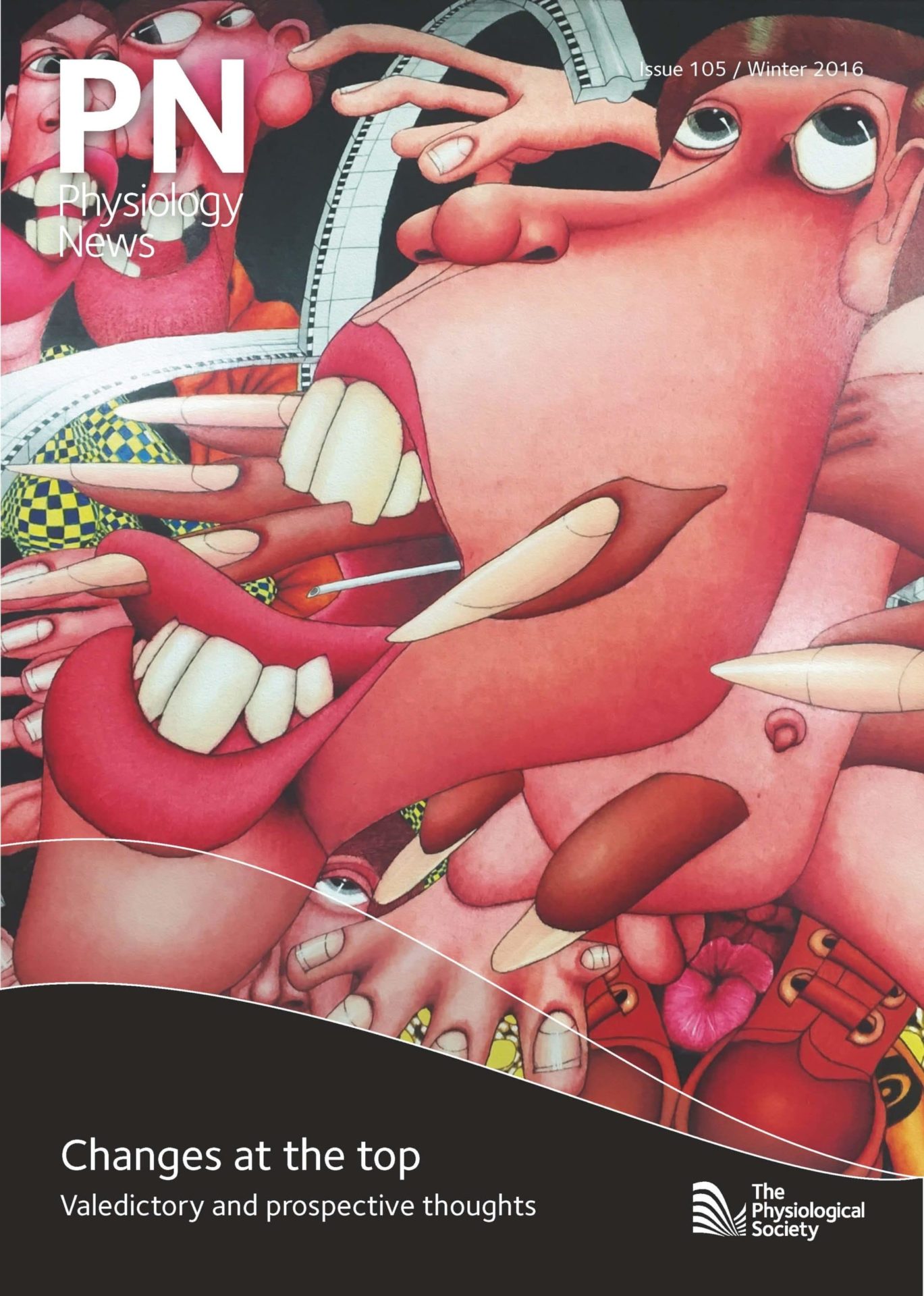
Physiology News Magazine
Obituary: Constancio Gonzalez MD, PhD
1949 – 2015
Membership
Obituary: Constancio Gonzalez MD, PhD
1949 – 2015
Membership
Prem Kumar
University of Birmingham, UK Silvia Conde
Nova University of Lisbon, Portugal
https://doi.org/10.36866/pn.105.45
Constancio Gonzalez, who died in June 2015, was an eminent physiologist who made important contributions to the field of chemoreception and particularly to our understanding of the carotid body. He was instrumental in the major developments that generated the membrane hypothesis of oxygen sensing that recognized a seminal role for O2-sensitive K channels and an author of the first report of Type I cell O2-sensitive currents in Science in 1988. Additionally, Constancio contributed significantly to our understanding of the hypoxic transduction cascade of the carotid body and was the leading contributor to our appreciation of the complex role of catecholamines, particularly dopamine, in chemoreceptor synaptic transmission. His almost 40 years of published works reflect a scientific career that journeys from the study of the most fundamental aspects of the physiology of the carotid body chemoreceptor cells to the translational and covers papers on neurotransmission, the molecular identity of the oxygen sensor and the pathophysiological mechanisms behind the development of several obstructive sleep apnea associated-comorbidities. Constancio was also a great synthesizer of the emerging and often perplexing data arising from the early studies on chemotransduction literature and his review articles were always comprehensive and insightful. For many entering the field, his Physiological Reviews article ‘Carotid body chemoreceptors: from natural stimuli to sensory discharges’ was a valuable and authoritative introduction.
Constancio was born in 1949 in the Spanish village of Renedo de Valderaduey in the province of León. He had an incredible pride in being Leones and never lost the opportunity to invite his friends to his village. Many will remember him as an amazing host who loved his Country.
He received his medical degree in 1974 from the University of Valladolid in Spain and in 1977 he pursued his PhD at the same University with a thesis entitled Neurotransmission in the Carotid Body, under the supervision of Professor Carlos Belmonte. From 1976-1980 he went to the University of Utah in the USA to pursue postdoctoral training under Professor Sal Fidone, with his beloved wife, Ana Obeso, with whom he shared all his life, scientifically and personally. After his post-doctoral training, he returned to Valladolid and between two further stays as a Visiting Professor in the United States, he advanced to the rank of Professor of Physiology, becoming the Director of the Department of Biochemistry and Molecular Biology and Physiology of the Medicine Faculty in 1995, a position he held almost until his death.
Constancio received enormous recognition and awards. He served as President of the Spanish Society of Physiological Sciences and supported successful joint meetings between the UK and Spanish Societies. He also held the President role for the International Society of Arterial Chemoreception (ISAC) and was Editor of several scientific journals, including The Journal of Physiology. He was awarded with the Severo Ochoa Award for Biomedical Research in 1999, with the prestigious Castilla y León Award for Scientific and Technical Research in 2011 and this last September he was posthumously awarded the Antonio Gallego Award for his dedication to teaching and research in Physiology. The approximately 200 refereed articles in international journals, books and monographs, as well as the many external collaborations reflected in these publications also tell of the remarkable and friendly scientist that Constancio was.
During his term as President of ISAC, of which he was a founding member, Constancio and his colleagues hosted a truly memorable Conference in Valladolid in 2008 on the occasion of the XVII Meeting of ISAC. He was proud to have been able to have the Conference opened by a talk given by F. de Castro, the grandson of Fernando de Castro whose anatomical studies during the 1920s in Spain, many believe, were the first to open the field of chemoreception. To us, Constancio can be viewed also as a descendent of that remarkable Spanish lineage in carotid body physiology that continues to this day. Those of us who were lucky enough to be in Valladolid with him and his colleagues that year enjoyed great science and exemplary hosting. In his own words in the Foreword to the published Proceedings, ‘We like to remind you that Valladolid, Old Castile, is a land full of history, good gastronomy and excellent wines’. We were reminded and we will not forget.
As a superb and enthusiastic teacher and mentor, he was the supervisor of dozens of physicians and researchers and contributed to generate high-level researchers not only in Spain, but also across the globe. He was an exceptional person who combined his remarkable intellect and ability with an enormous wisdom and many will remember him for his help in defining their own scientific trajectories, by the wise advices he offered and by the friendly words, always at the right moment.
The last years of Constancio’s life were constantly shadowed by ill-health, which he bravely fought with a lot of strength and determination, without ever reducing his scientific activity. Constancio believed deeply in the value of physiology and in supporting physiologists and he was always a strong supporter of our Society and many of us will have fond memories of spending time with him and Ana when they attended the Physiological Society’s main meeting in Manchester in 2012. Many of his friends would say that it was science and his insatiable thirst for scientific knowledge that kept him going in his last years. Definitely, in these last years his body did not follow his mind. He is survived by his wife, Ana and his children, Elvira, Ana and Constancio. He is much missed!
